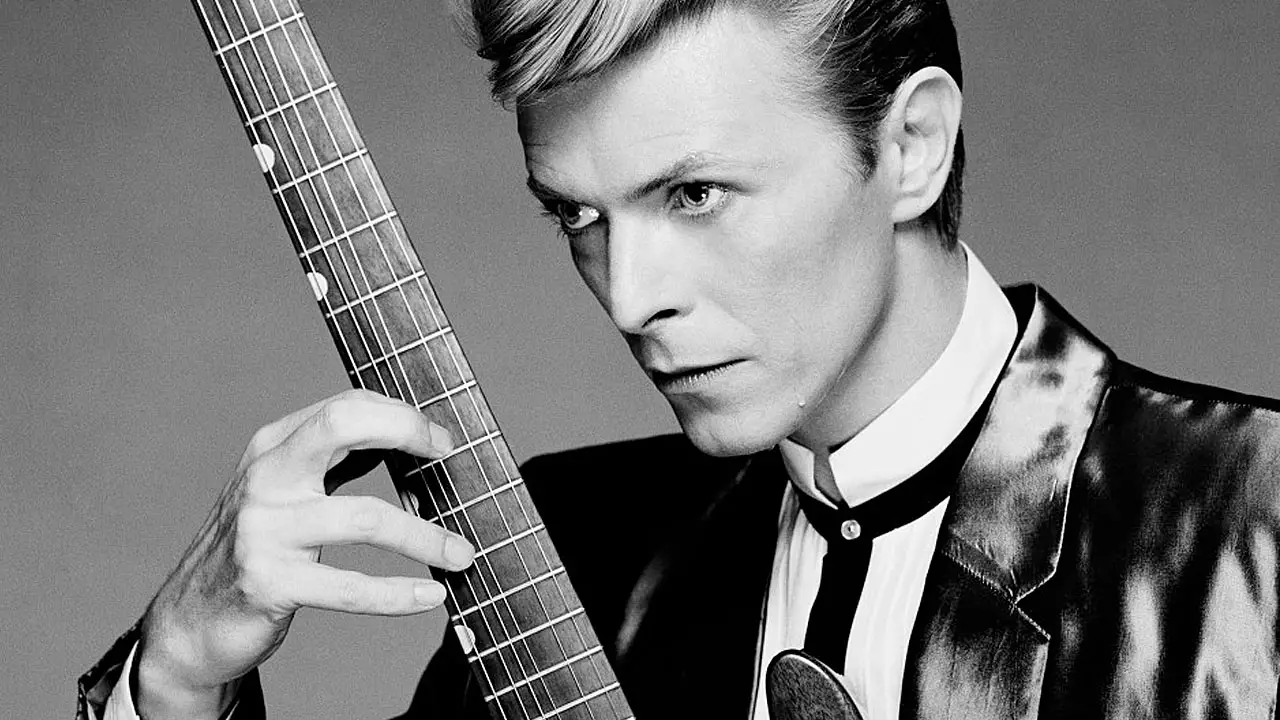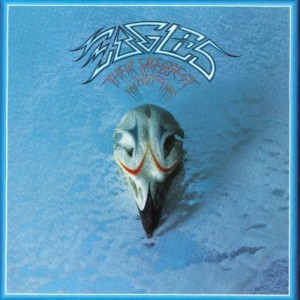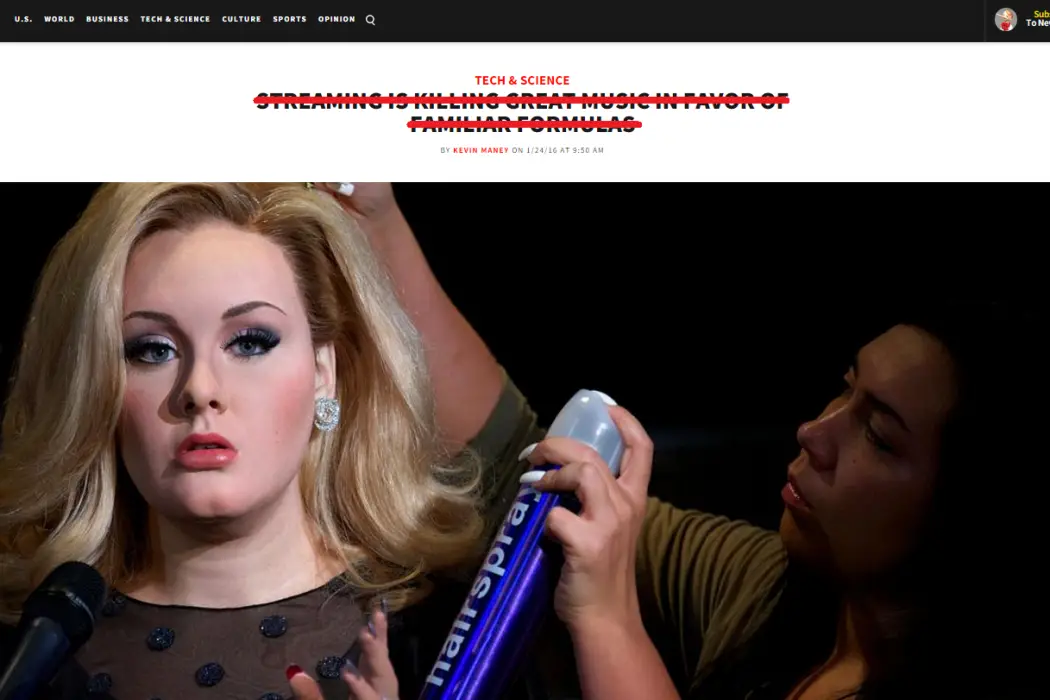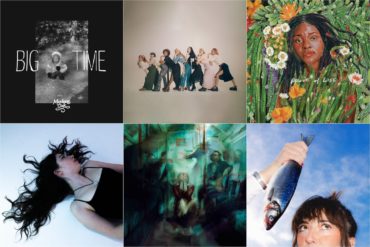Disclaimer: I originally intended to post this on Facebook, but after typing it in a comment box, I decided it deserved a wider audience than the insular world of social media.
On January 24, 2016, Newsweek posted an article entitled, “Streaming is Killing Great Music in Favor of Familiar Formulas” by New York Times bestselling author and frequent technology columnist Kevin Maney. The hook:
Technology is making sure that from now on we get a boatload of Adeles but never again the likes of David Bowie.
It is a fantastic hook, if you ask me: It did its job in catching my attention.
Now that you have presumably read this article too, I would like to express how strongly I disagree with its outlook and conclusion. As a music maker, I find it important to keep Mr. Maney’s argument in mind, but nevertheless this article is a prime example of extremely shortsighted and one-sided writing in the music industry. It is the opposite of scholarly: It is panderous clickbait that caters to our fears.
— —
“Nothing like N.W.A is going to happen in any foreseeable future… We’re looking at another decade of music that’s about as culturally significant as a new Ben & Jerry’s flavor.”
— —
Three important factors to keep in mind when discussing the past, present, and future of the music economy are: the diminished face value of music, the supply (availability) of artists, and the hits/singles-driven nature of pop radio and general music consumption.
My argument is thus: In an environment driven by singles, favoring radio hits over deeper album cuts, low market value in a saturated marketplace leads distributors (aka labels) to favor multi-hit makers (how many one-hit wonders have there been since 2005 compared to the number in previous decades?), pushing those few artists to the forefront of visibility through a constant presence on radio and through branded marketing.
This leaves less legroom for one-hit wonders and album-oriented artists to stand trial: There are only so many hours in a day, and in our playlist-driven, shuffled-music society, those with more hits get more air time.
However, in the face of what logically seems a discouraging and disincentivizing system, outside-the-box/unsigned artists are more prevalent and more accessible than ever before, thanks to direct-to-listener (a cousin of “direct to consumer) websites like SoundCloud and the expedited artist-consumer relationship fostered through social media.
Music careers start in free streams and social media these days. Radio is a pipe dream for most, but music makers persevere nonetheless. Now that music makers can make their media directly available to listeners, the struggle for “success” just takes a little longer than it used to take.
To accept the worse and spread it like rhetoric is a foul dismissal of not only the thousands of artists currently making their music available to millions of listeners through free streaming platforms, but also the entire music industry. It is a close-minded denial of changing tides, consumed with a past that could not realistically compete with the present or the future.

A Changing Game and Changing Stakes
Firstly, I would like to address the deification of David Bowie. There can be no doubt that Bowie was a chameleonic figure, but please realize that David Bowie was a once-in-a-generation presence. He got in early and at the right time, and amassed enough cultural power at his start to get by year after year, and eventually maintain relevance decade after decade. His catalog is far from perfect, though (as I will discuss later): I think the more appropriate argument to make is that artists no longer have the same label resources that Bowie had at his fingertips.
Of course, Bowie didn’t have Logic or ProTools on his Macbook Pro.
We have yet to settle into true music homogeneity, and I doubt we ever will. Time will prove there to be plenty of potential “David Bowies” still out there, surviving off mild, occasional and lackluster successes while they experiment with their sound and artistry. It is true that mainstream acts are preferred by labels over “fringe” artists now moreso than in the past, but this decade has seen plenty of noteworthy “challengers” who have enjoyed various degrees of success. FKA Twigs, Chance the Rapper, Tame Impala, Grimes, Parquet Courts, Lana Del Rey, Florence and the Machine, Gotye, Lady Gaga… The list goes on.
The significant difference between now and prior non-streaming decades is that now, the stakes are raised to their highest. Recorded music is less valuable and less lucrative than ever, meaning an artist’s output is worth less than what it used to be worth. This puts a lower value on every song, meaning labels need to be more frugal with the money they lend to recording artists if they (the labels) want to see a return on investment before going bankrupt.
Labels are afraid of taking chances, and for good reason: A few wrong moves could lead to extinction. Just look at the playing field: There are only three major labels left in existence! If history and market research reports indicate that an artist like FKA Twigs will only cater to a minority demographic, a major label is not going to invest its resources in that artist.
But does that sort of barrier to entry, decried from the highest rung, prevent artists like FKA Twigs from making and spreading great, unique music? No!
She just had to find a new way to survive – and she did.
“Different” Artists Still Abound
The economics of music would make sense if it were a science, but music is not a science; it’s an art. Those who profit from visibility (labels, radio, and recently Spotify) demean the artistic side of music by pushing the same familiar hit-makers until they have been drained of every ounce of their humanity — but this is nothing new, and it does not mean there is less creativity in the music space!
— —
“The dynamic makes it hard for a “different” artist to build and keep a fan base that will stay loyal—and keep the artist afloat—as he or she experiments and challenges popular music. So the more unusual the music, the less likely it will get any traction.”
— —
Point/Counterpoint: Lady Gaga wasn’t dropped from Interscope after 2013’s Artpop was a dud. She got into the music world as a budding songwriter, made waves as a pioneering pop artist in the mid-2000s, and has now started pushing into the exciting, adventurous world of non-hits. She is still respected and regarded as successful, and at only 29 years of age, she has plenty of promising decades full of reinvention left.
Lady Gaga has certainly enjoyed a greater concentration of what we consider “early success” than Bowie did, but recall that an artist’s life does not start with the first hit: Gaga was around and struggling long before The Fame. Conversely, Kings of Leon struck big with 2008’s Only by the Night, generating radio hits that started with “Use Somebody” and opened the door to “Sex on Fire” and “Notion.” Only by the Night was the band’s fourth album, released at a time when streaming music was growing in prospect and popularity. The band haven’t really been back in the public eye since then, but anyone who follows them knows their music has continued to grow despite the obvious pressures to conform to pop radio standards.
But let’s not stray too far away from the fact that “the more unusual the music, the less likely it will get any traction” is a bland, inane and worthless statement. It assumes that the opposite was once true. Since when has unusual music been favored? Who listened to The Beatles’ “Wild Honey Pie” or “Revolution 9” and said, YES! THIS IS WHAT WE’VE BEEN WAITING FOR!
It was another time.
The Old Industry Supported Developing Artists
Bowie’s life has certainly been romanticized since his death: He was, as Maney notes, not without his dark periods. But to assume the rare “David Bowies” of the world no longer have access to most labels’ resources is a failure of recognizing that all artists had access to label resources during music’s boom years: How many albums do Yes and Rush have? Consider The Eagles:

The Eagles put out 4 albums, each with a maximum of two hits, for five years before striking big in ’76, first with the February release of the compilation Their Greatest Hits (which literally takes the place of those first four albums), and second with December’s Hotel California.
Bowie’s first album was a complete dud, but he saved himself on his follow-up with “Space Oddity.” BUT! I doubt anyone reading this article knows a single song off his third album. His career reads a little like that of The Eagles, and so many other artists who blossomed in the 1970s. Queen’s chronology reads the same way, and like Bowie, once achieving it, they worked hard to maintain relevance through the passing decades.
One big win for the label used to mean more pocket change for dozens of smaller, fringe artists. Now, it’s barely enough for to support a single artist alone. Most labels are just scraping by as it is, and a “pet project” is more likely to get a VP fired than promoted. No one is willing to risk it on a chameleonic figure, but that has nothing to do with streaming services: That’s been the common trend since Napster downgraded music’s value in the early 2000s.
If Anyone Is To Blame…
We point fingers and dance around the question of major label economics because we are too ashamed to admit that we, the public, are in large part to blame for major label conservativism. Through the public’s unwavering support for, and adherence to the lowest common denominator (Top 40 / “hit” radio and a singles, rather than album-driven economy), we THE POPULACE have cultivated a society of plastic look-alike music makers, whose names we know because it’s more likely that folks will generally listen to someone marketable across multiple industries, whom they already know and have been shown to like, than someone they have never heard of before, who isn’t relatable or cross-demographically “marketable.”
No one has access to ’60s and ’70s-era label resources anymore, but you also don’t need $1,000,000 to record an album in a state-of-the-art studio. One of my favorite acts, Oh Wonder, recorded an unwavering stream indie world (Hype Machine) chart-topping singles in their private houses, using their laptops and gear probably worth a few thousand dollars maximum. They garnered millions of streams per song on SoundCloud, which generates no revenue but is more social media-friendly than the revenue-generating streaming service Spotify, before turning a profit and signing to major label Republic Records.

When I met Oh Wonder last year, I asked them what their band was about. You don’t need to know them or their music well to understand this quote:
Oh Wonder, to me, is about respecting the craft of songwriting and trying our best to… I don’t want to saying anything that’s like, really derogatory to other people. It’s about respecting the art – the craft of songwriting, and focusing on the importance of great lyrics, great melodies and meaning, and spreading a message of ‘the good stuff’.
They didn’t care about the money – even one of their songs contains the quote, “Not in it for the money.” The band’s quote truly says it all, and I’m sure the likes of FKA Twigs, Chance the Rapper, Tame Impala, or Grimes would agree. Most artists, whether or not they get signed at some point, make their music out of passion: They are driven by an inner need to create. I have interviewed several major label and independent artists, and all of them – from Carly Rae Jepsen to Jamie N Commons, to FIDLAR, to Skylar Grey, to Dustin Tebbutt, to CAPPA, to A Silent Film, to Oh Wonder – have expressed that same fiery passion. No one makes music to sell music and gets away with it; not for long, at least.
Diverse Music Is Aplenty and Easy To Find, Just Less Visible
Kevin Maney, and others, too, look at the big picture and assume that a lack of funds will dry up the creative well: That music will become a science, rather than an art. The industry’s big heyday may be in the rear-view mirror, but with the costs of making music at an all-time low, the only barrier to entry seems to be visibility. The popularity of UGC (user-generated content) sites like SoundCloud (which has over 100 million more users than Spotify) makes discovery of “new” and “different” music easier than ever.
No, you won’t hear them on the radio, but an artist no longer needs to be on the radio or to be signed to a label to be discovered: Artists can achieve success on platforms like SoundCloud, experimenting with their sound and style while developing relationships with listeners and fellow music-makers. This is not a new concept: Artists have been doing this for years, and because A&R types are generally smart, intuitive listeners, the picks of the litter end up getting signed to major labels!
Oh Wonder’s story rings true for many artists: You make your first album on your own, and if a label likes you, they swoop in and put you on tour. You can expect to make more money on tour than through album streams or sales; the rest is left to fate.
So what is there left to discuss? How do we move forward with streaming music?
Prospects for the Future of Music Culture
The traditional “music business” (still sounds like an oxymoron) model flew out the window long ago, and the music industry has been in flux for the past fifteen or so years. The model for music makers is still unfolding, but the 99% whom you do not hear on the radio have found ways of surviving. SoundCloud has begun striking licensing deals with major labels; it remains to be seen what kind of an effect this will have on all the little guys and girls who have benefited from SoundCloud without so much as a penny in return.
No matter what happens, SoundCloud is good for the music world: Pockets catering to different types of music in different places need to develop. There has to be a different biggest artist on ______ across different mediums: We cannot have Justin Bieber, Beyoncé and Kanye West filling up every single inch of every single medium! That sort of over-saturation kills creativity.
If the music world can properly spread out its resources and allow for multiple pockets of small growth (a SoundCloud best-of list that looks nothing like the Spotify Global chart) in contrast to the “big growth” likes of Top 40 radio and TV licensing, then creative music will continue to persevere despite the logical pressures against it.
The ideal scenario will never work: Truthfully, music needs to be properly valued. If people truly cared about this issue and wanted an expedited, real fix for both artists and listeners, we millennials would need to resolve to purchase music at full, label- and artist-friendly prices. Those are the prices that allowed for the likes of David Bowie to experiment for years without multiple hit singles to his name. But that means we would need to purchase singles for more than $0.99 and albums for more than $7.99, and access streaming services like Spotify for rates of $99.99 rather than $9.99.
That won’t happen any time soon, and yet great music still thrives. Newsweek may not know it; The New York Times may not know it; but Pitchfork knows it. Atwood Magazine knows it.
If you want to find great music, turn off your radios and turn on your music streams. There is an ever-increasing amount of new, emerging artists to discover online, and they are only a few clicks away.
— —
“Music is getting less diverse, less interesting and less forceful as an instrument of cultural change.”
— —
Kevin Maney’s article for Newsweek shocks readers into fearfully submitting to the fact that music was once “an instrument of cultural change.” It ignores the ways in which music continues to be a centrally unifying and dividing staple of our culture, equally ignoring the history behind music’s heyday and the reasons behind that ideal, more generous model’s dissipation.
Artists may have to remain independent for a little while longer, or forever if they want to achieve “success” in the 21st century, but surely the advanced communication between artists and listeners, and the incredible, unprecedented access that has given millions of music makers a voice and a platform to be heard – to be part of a greater community – is worth the cost.
Atwood Magazine is a small entity, but we find over 100 exciting, head-turning new songs every month or so, and we curate them, shaping them into a “new music” playlist. We do it every month, because there is always new music waiting to be discovered, listened to, and enjoyed! If we can curate new music on a free streaming platform, so can anybody else.
Whether you rely on curators like us to do the compiling for you, or your like getting your hands dirty, streaming music gives lightning access to artists from around the world. The impact may be different and the quality may vary, but music is just as powerful as it ever was.
Streaming is not killing great music: It is enabling and spreading it far and wide.
Listen: Atwood’s Picks :: January 2016
[soundcloud url=”https://api.soundcloud.com/playlists/182542091″ params=”color=ff5500&auto_play=false&hide_related=false&show_comments=true&show_user=true&show_reposts=false” width=”100%” height=”450″ iframe=”true” /]
title image: newsweek.com and Andrew Cowie/AFP/Getty









